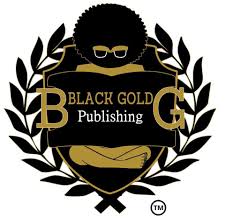BY GREGORY HEDGEPETH
One of our main initiatives for the year is to showcase the accomplishments of women of color in the publishing industry. While women dominate the industry across all departments, including editorial, production, sales and management, these are mostly white women. People of color are few and far between in the industry. Four percent of workers are Asian and Hispanic, respectively, while only two percent of workers are Black or African American.
While it comes as no surprise that the industry is driven largely by white women, I had no idea the disparity was so immense until I began researching for our initiative. A few weeks ago, I had a few questions for Tahara Saron of BlackGold Publishing, a Black-owned, woman-owned publishing company out of Newport News, Virginia, and she took time out of her incredibly busy schedule to give me insight into why she started BlackGold, how she conquers work-life balance as well as the most difficult part of running her business.
I’ve always been incredibly impressed with your work at BlackGold. Why did you decide to start a publishing company?
I actually started BlackGold Publishing shortly after a personal experience with the prejudice that so often plagues this industry. I had a major publishing house, upon review of my manuscript, tell me that my work was too “ethnic.” I realized then that I needed to create a safe space for myself as well as for other black creatives in the area — where they could freely express themselves both culturally and creatively. The serious lack of representation and diversity, both within the spheres of production/marketing, staffing and mainstream releases, will never sit right with me. It’s within my hopes that, alongside the other Black-owned publishing houses statewide, BlackGold Publishing will do its part to change the narrative.
I’m sure that story resonates for many authors and company leaders within the industry, myself and Vital Narrative included. How do you decide which books to publish or authors to pursue?
We have the traditional review process as most publishing houses. Once a manuscript has been sent in for consideration, it is sent straight to our editorial board. They analyze key elements such as marketability, story arc, character development, structure, style and tone to convene on a final decision before sending it back to me for approval. They are very good at vetting out raw talent, and for that, I’m extremely grateful. On the other hand, I am typically a lot less structured LOL I hardly say no to any one seeking publication, within reason, of course. But if it’s plausible to work with you and build with you in any way, more times than not, I’ll do my best to accommodate the author.
It’s great to know that you’re willing to work and build with authors. I think that’s an element that is missing with a lot of publishing companies. How do you find the balance between your family and your business, which must take up a tremendous amount of time?
You know, this is a great question… one that I’m asked quite often. Truth is though, I can’t even tell you how I have survived some of these days, because quite frankly, it gets really, really hard. What I’ve realized though, is that for me, it’s been less about perfecting a balance so to speak and more about not giving up on myself. There is no such thing as a universal strategy to stability, trust me I’ve looked. But if you focus your efforts on not letting anyone down, including yourself, through determination and tenacity, you can do anything you put your mind to.
It’s commendable for you to be so determined and put your focus into yourself and the people around you in order to succeed. What’s the most difficult part of running your business?
The most difficult part about running BlackGold would be, still, dealing with the oppressive forces that remain behind the scenes in this industry. We’ve been hung up on, redirected in wild goose chases, called a “negro company” and disrespected in a plethora of other offensive, manipulative ways. But it doesn’t stop us. As an independent company, I expect our journey to not always be reflective of that which is in our hearts. The bad experiences only fuel our passions ten times stronger and have led to breakthroughs and unbelievable opportunities. We won’t be stopped.
Persevering through the forces working against you is the key to making in this industry — I love that you already have the mindset that you won’t be stopped. What do you hope to accomplish over the next several years?
We are currently shifting into a more distribution-heavy publishing style, working on contracts with Scholastic as well as scoping out our first major factory. It’s all surreal to me. The growth has been phenomenal, but we are excited and grateful to see what the future holds.
I can’t wait to see what comes next for you and BlackGold. I’ve been very impressed with everything I’ve seen from you all thus far. Do you have any final thoughts?
I’d like to close on a note of encouragement for any minority creatives out there looking to take their work to the next level — be unafraid. Be vehemently unafraid of the power and talent you possess. Audre Lorde, one of my favorite authors and activists, said it best: “When I dare to be powerful, to use my strength in the service of my vision, then it becomes less and less important whether I am afraid.” I encourage you all to find your power and to find your voice. Our expression is all we have, so don’t be afraid to do so.
The BlackGold Publishing Promise:
“We are currently servicing a diverse group of authors and clientele thanks to our amazing service members and staff! Absolutely everyone here on the BlackGold Publishing team believe’s in quality service and putting our clients first. We also pride ourselves in being 100% inclusive - providing continuous representation and opportunities for writers of all walks of life.”
Gregory Hedgepeth is the editor-in-chief of Vital Narrative Press. You can follow him on Facebook, Instagram or Twitter. Feel free to follow on all three. Or maybe just two. Yeah, two’s probably good — he’s not that interesting. Gregory Hedgepeth is also the author of MISCONCEPTIONS ABOUT SUNRISES, THE YEAR THAT ANSWERED and A COLLECTION OF ECHOES. BUY THAT SHIT.































